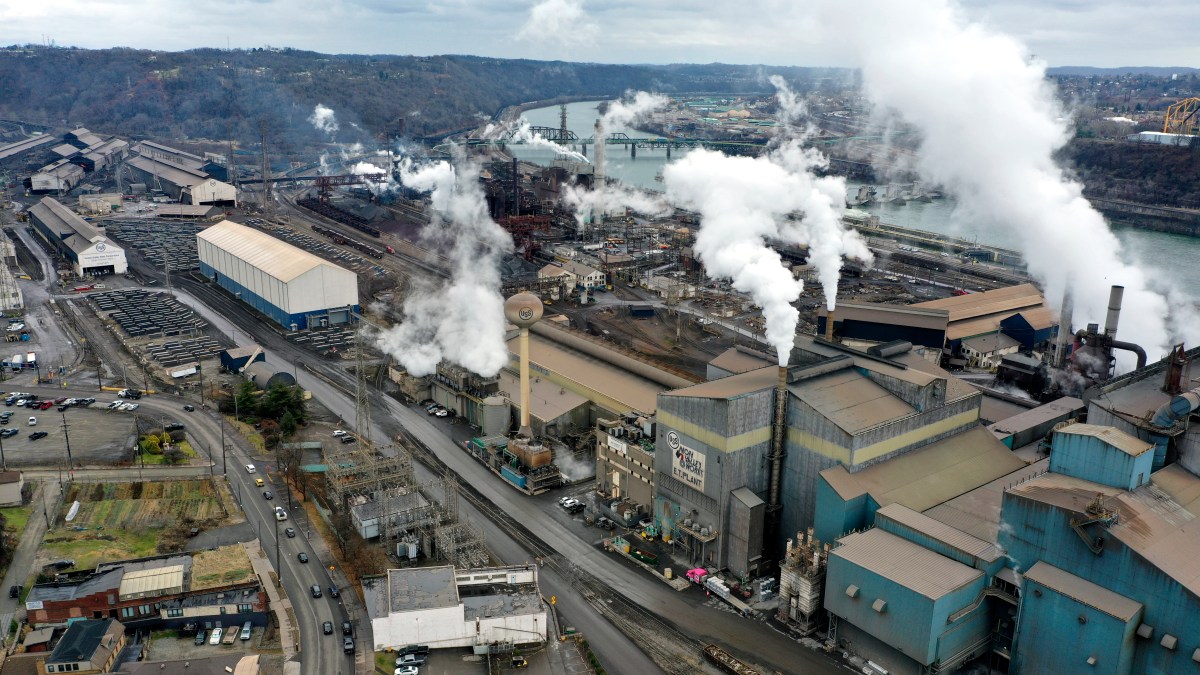Major establishment voices, including some who are otherwise fans of “Bidenomics,” have been lambasting the president in recent weeks for his opposition to the planned sale of U.S. Steel to Nippon Steel of Japan. The Washington Post editorial board, for example, has charged that Joe Biden is undermining his own economic program by opposing the deal, which it says will bring an infusion of badly needed capital into U.S. Steel’s aging mills. Similarly, The New York Times published a guest editorial by economics writer Roger Lowenstein, who argued that blocking the deal would be “destructive to American interests overseas and at home” and that Biden’s trade policy is “Trump-lite.” For its part, the Washington Monthly has run one piece supporting the merger, “Approve the Nippon-U.S. Steel Deal” by Mike Lofgren, author and career defense analyst for the House and Senate Budget Committees, as well as one by former Pittsburgh Mayor Bill Peduto (“Steel Can Lead the Green Revolution”) which noted that, while the purchase was being frowned upon in his hometown, also pointed to the upside if the Japanese steel giant invested in clean technology: “Nippon has the opportunity to create 21st-century mills powered by green hydrogen that can bring Pittsburgh back to the world stage in advanced and heavy manufacturing.”
Yet a closer look reveals that Biden’s decision is not lurching toward protectionism, let alone following Trump’s example. To be sure, Trump also opposes the Nippon-U.S. Steel deal, but for reasons rooted solely in primitive economic nationalism. Biden’s opposition, by contrast, is in line with his efforts to address concentrated and fragile global supply chains while decarbonizing the economy.
Start with the environmental piece. Globally, steel production is responsible for 11 percent of the world’s carbon emissions. Reducing this number is essential to any serious effort to slow and reverse climate change. Accordingly, the Biden administration is negotiating with other responsible governments to form a Global Arrangement on Sustainable Steel and Aluminum, commonly known as a “Green Steel Club.” The arrangement would set high tariffs on carbon-intensive steel imported from countries with unsustainable practices, which mostly means China.
China is not only the world’s largest steel producer, controlling 55 percent of global production, but also one of the dirtiest. Fully 90 percent of China’s steel is produced using blast furnaces, which require large amounts of coking coal. For every ton of Chinese steel produced, about half a ton of coking coal is used as an input. When it comes to producing steel with less carbon emissions, China remains a laggard, so shifting more production away from China will benefit the whole planet.
Yet another laggard in efforts to decarbonize steel production is Japan’s Nippon Steel, the world’s fourth-largest steelmaker. The company recently announced that it is “considering” a $733 million investment in green steel produced by hydrogen in Australia or Brazil. But, according to Industrious Labs, the company doesn’t have a legitimate plan to transition away from blast furnaces and incorporate zero-carbon technologies into its processes. The company has been ranked among the worst performers among its Asian counterparts in decarbonization.
So, what would Nippon do with U.S. Steel? If the deals go through, Nippon would gain control of six blast furnaces in the U.S., including three of the highest polluting steel mills in the Midwest. Would Nippon replace those plants or, at least, invest in making them cleaner? It’s possible, but nothing in the past behavior of this company (with a market capitalization of over $23 billion) suggests it would. Meanwhile, Nippon does not need to make such an investment because its dirty steel-producing facilities in the U.S. would be safely protected behind the Green Steel Club’s trade barrier.
Biden’s opposition to Nippon’s takeover of U.S. Steel is consistent with his efforts to lessen America’s dependence on insecure, over-extended supply chains. As one of the president’s closest economic advisors, Lael Brainard, the director of the National Economic Council, put it, “The purchase of this iconic American-owned company by a foreign entity—even one from a close ally—appears to deserve serious scrutiny in terms of its potential impact on national security and supply chain reliability.” The administration must also continue to address China’s massive and unfair steel subsidization and promote a global transition to green steel, which can help the environment, produce resilient supply chains, and create American steel jobs. In 2015 and 2016, the U.S. lost 16,000 steel jobs because of unfair trade practices. It needs to be addressed whether Nippon’s acquisition hinders America’s efforts.
If the deal goes through, Nippon might invest more in building up steel production in the U.S., or it might not, but regardless, a purchase of U.S. Steel will leave foreign investors controlling still more of America’s strategic industrial base, and not in a way likely to spur investment in green technology. Biden is hardly being protectionist, let alone a Trumpist, when he says that the last thing that we need to be doing is selling off more of our remaining industrial base to overseas investors with a history of being major polluters. As the president has clearly stated: “It is important that we maintain strong American steel companies powered by American steel workers.”



